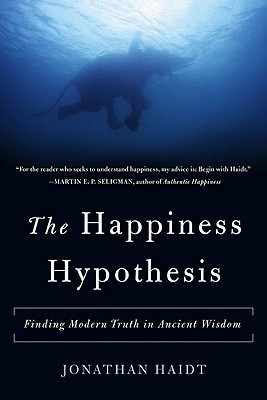
The Antidote: Happiness for People Who Can't Stand Positive Thinking
Book Description
What if the secret to happiness lies not in relentless optimism but in embracing life’s uncertainties? In "The Antidote," Oliver Burkeman invites readers on a revelatory journey through the paradox of positivity. He challenges the cult of cheerfulness, shedding light on the power of vulnerability, acceptance of failure, and the beauty of imperfection. With a blend of profound insights and engaging anecdotes, this book offers a refreshing perspective that celebrates the messy, chaotic nature of being human. Are we brave enough to confront discomfort and find joy in the shadows?
Quick Book Summary
Oliver Burkeman's "The Antidote: Happiness for People Who Can't Stand Positive Thinking" challenges the mainstream obsession with relentless optimism. Instead, it proposes that a deeper, more sustainable happiness comes from embracing uncertainty, failure, and even pessimism. Drawing on a mix of philosophy, psychology, and personal anecdotes, Burkeman debunks the notion that positive thinking is always beneficial. He introduces concepts from Stoicism, Buddhism, and contemporary psychology to show that acceptance of life's difficulties, open confrontation with fears, and comfort with imperfection foster resilience and wellbeing. This approach leads to a richer, more realistic engagement with life's complexities, suggesting that genuine contentment arises not from avoiding negativity, but from learning to live with and learn from it.
Summary of Key Ideas
Table of Contents
Embracing Uncertainty and Imperfection
Burkeman begins by questioning the modern cultural demand for positivity and the widespread belief that happiness depends on banishing negative thoughts. Drawing from research and real-life examples, he suggests that chasing relentless optimism often leads to greater disappointment and anxiety. Instead, he advocates for a more paradoxical approach: finding happiness by making peace with uncertainty, setbacks, and imperfections. This does not mean giving up on happiness but redefining what it means to be content and resilient in an unpredictable world.
The Limits of Positive Thinking
Much of the book is dedicated to dissecting the limitations and unintended consequences of positive thinking. Burkeman explains how relentless focus on positive outcomes can create pressure, magnify the fear of failure, and set unrealistic expectations. He discusses the psychological notion of "ironic process theory," where attempting to suppress negative thoughts only makes them stronger. By exposing the pitfalls of forced positivity, Burkeman encourages readers to accept the full spectrum of emotional experiences rather than striving for perpetual cheerfulness.
Learning from Failure and Negative Emotions
The author explores the profound benefits of learning from failure, vulnerability, and negative emotions. Through stories and scientific studies, Burkeman reveals how these aspects of life are not obstacles to avoid, but essential teachers that foster growth, strength, and empathy. Facing discomfort head-on, he argues, imparts crucial lessons and helps individuals cultivate genuine confidence and self-understanding. Failure, far from being an endpoint, becomes a starting point for resilience and self-discovery.
The Role of Acceptance and Letting Go
Acceptance emerges as a powerful and liberating theme in the book. Burkeman draws on mindfulness practices and Stoic wisdom to illustrate how letting go—of control, of rigid expectations, of the need to always be happy—leads to greater equanimity and peace of mind. By focusing on acceptance rather than resistance, individuals become better equipped to handle life's inevitable difficulties and uncertainties without becoming overwhelmed or disillusioned.
Drawing Wisdom from Philosophical Traditions
Throughout the book, philosophical traditions play a significant role. Burkeman explores Stoicism, Zen Buddhism, and the thoughts of thinkers like Alan Watts to bolster his argument for the antidote to relentless positivity. Each philosophy offers unique perspectives on living well with uncertainty and impermanence. Ultimately, Burkeman conveys that a realistic, open-eyed acceptance of life in all its messiness leads to a deeper, more abiding happiness than the fleeting high promised by simplistic positive thinking.
Download This Summary
Get a free PDF of this summary instantly — no email required.





